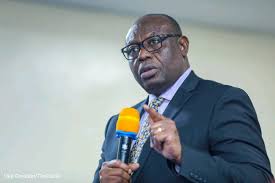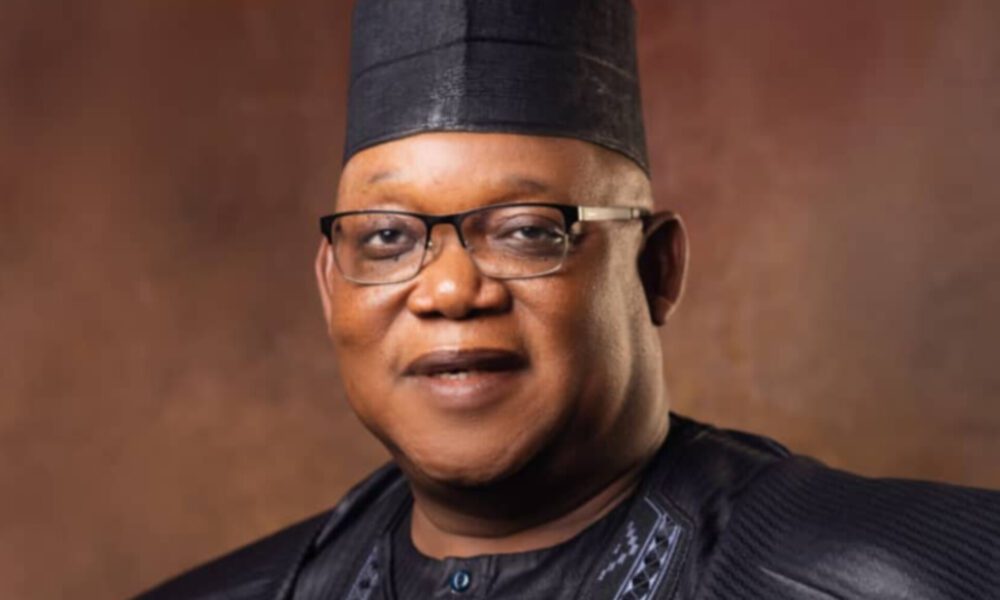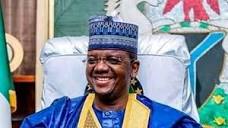With less than a year to the 2023 general elections the race for the presidential ticket of political parties is getting more intense. As political parties strategize towards holding their party primaries, the issue of which of the 6 geopolitical zones in Nigeria will their presidential candidate emerge has been a subject of national discourse. Equitable zoning of the presidency in the 2023 general elections by the two major political parties, the All Progressive Congress (APC) and the People’s Democratic Party (PDP), is currently one of the most contentious issues in Nigeria today. Although the concept of zoning electoral positions by political parties is not expressly captured in the 1999 Constitution of the Federal Republic of Nigeria (as Amended) it is in tandem with the Federal Character Principle as enshrined in its Third Schedule, as a way of promoting equity, justice and fair play and giving every constituent of the Nigerian society a sense of belonging. Zoning or Power Shift is a veritable instrument for protecting the equality of citizens’ rights and guides against the marginalization of the ethnic minorities. It ensures societal harmony through the equitable devolution of power and allocation of resources.
Power Shift or Rotational Presidency has been a major cause of feud in the Nigeria polity since independence in 1960. It carries with it a strong moral force that can threaten the existence of Nigeria as a sovereign entity. Rotational Presidency is a pragmatic means of stabilizing the Nigerian democracy and has been an ideological norm formally adopted by many political parties prior to Nigeria’s independence. Problems of cleavage along ethno-religious lines can only be addressed by this power sharing arrangement which although unlegislated upon, has been in prolonged usage and widely accepted by the people and commands the conscious obeisance by the majority of its citizens. Of the 62 years post-independence Nigeria, the North has ruled for 37 years, mostly as military Heads of State, and some political analysts belief this would have conferred some advantage on the region, as in the absence of parliamentary scrutiny many critical national assets, establishments and appointments can be inequitably sited in this part of the country by military fiat. In the current democratic dispensation, the North-West has produced two Presidents from the same state, and aside from the middle-belt, the core north is homogenous for language and religion and can conveniently cohabit as single ethnic entity. Southern Nigeria on the other hand, has 2 major ethnic groups, the Yoruba and Igbo that are clearly identifiable with little cultural inclinations.
Since the advent of the fourth republic, apart from the South-East and North-Central, the other geopolitical zones of Nigeria have had a shot at the presidency. The two major Political Parties, the APC and PDP have already zoned their party’s National Chairmanship position to the North-Central and barring any ‘extenuating circumstance’ and from antecedents and ‘their body language’, would choose their Presidential flag bearer from the South and the Vice-President from the North-East. Going against this arrangement no matter what expediency and zoning the Office of the President to the North or micro-zoning it to a Geopolitical bloc in the south that had already had a shot at it in the current republic will make nonsense of the zoning principle and defeat the spirit of its intendment with dire consequences on the stability of the country. Thus, contrary to arguments that there was no order of zoning, Nigeria has religiously adhered to this bipodal sharing of critical political offices as evidenced by the major political parties restricting their presidential tickets to a Presidential candidate who is a Christian from the South with a Northern Muslim Vice-Presidential running mate in the 1999 elections or vice versa since then, and mandatorily fielding Gubernatorial candidates paired with a Deputy from a different Senatorial Zone.

Proponents of the anti-zoning mantra, argue that zoning has outlived its usefulness and has no place in the Nigerian Constitution. They hide under their perceived regional numerical dominance, to posit that the President should be picked from any part of the country based on competence or merit. This call by critics of Rotational Presidency is unpatriotic, sounds politically arrogant and devoid of statesmanship as no segment of Nigeria has a monopoly of talents and will breed regionalism and ‘ethnic hegemony’ since the section with the highest voter population will always produce ‘the best man for the job’. Equity and fair play demands the status quo be maintained until the position of President alternates or rotates between all 6 geopolitical zones in Nigeria in full circle, before such proclamation can be made. Jettisoning zoning in the 2023 elections is tantamount to ‘changing the rules in the middle of a game’, and akin to the proverbial ‘elephant that breaks the pot after its turn to drink’. Besides, events in the Nigeria political space have shown that no geopolitical zone despite its voting strength can on its own meet the conditions precedent in the 2022 Electoral Act (as Amended) and score not less than 25% of votes cast in at least two-thirds of states in the federation to win the presidential election, especially with a stiff opposition from 3 or more geopolitical zones.
Naysayers also argue that since the return to democracy in May 1999, by the end of the current regime a northerner would have occupied the Office of the President for only 10 out of the 24 years, and that the north would have held power under the PDP Government for just 2½ years. Therefore, to strike a balance, there is the need for the Office of the President to remain in the North for additional 4 years, making 12 years back-to-back. This view is jaundiced, bereft of logical reasoning and has no historical basis. The unfortunate demise of President Umaru Yar’Ardua in 2010 was an act of providence and Nigeria as an independent nation has been in existence for 38 years before 1999. Therefore, for the sake of the country’s current fragile democratic governance and in the interest of natural justice, there is the need to run a politics of inclusion and all political parties should as a matter of exigency zone their Presidential ticket come 2023 to the South. This resolution of the Southern Governors Forum has been re-echoed by some prominent Northern political leaders such as Governors Babagana Zulum and Nasir El-Rufai of Bornu and Kaduna States respectively and some regional socio-political groups. The pros of zoning clearly outweigh its cons and therefore jettisoning it will be a dangerous precedent for the country’s nascent democracy and an affront on the collective will and peaceful coexistence of the people.
With the expected power shift to the South at the end of President Buhari’s statutory 8-year tenure, equity and national cohesion demands that the Office of the President of Nigeria be ceded to the South-East. This is because, the South-East is the only geopolitical zone in the south that is yet to produce a President or Vice-President since the return to civilian rule in 1999 and remains the most deprived of the Presidency. Therefore, in the eyes of equity it is imperative that all political parties rise above partisanship and regional sentiments and field presidential candidates from the South-East in the forthcoming election. This is within the tenets of democratic norms and ideals especially in a pluralistic society like ours. Egalitarianism cannot be fostered when a major component of society is nursing a feeling of discontentment. Hence, the collective interest and sanctity of the Federal Republic should be of paramount concern over the political interest of a few individuals, groups or political party. A political arrangement like zoning must accommodate the emotions and sentiments of those it is intended to serve for if not to out leave its usefulness.
The clamour for a President of Nigeria of Igbo extraction has continued to attract the attention of political actors in the build-up to the elections. This has received measurable support from the apex Igbo socio-cultural group the Ohanaeze Ndigbo and other regional bodies such as the Arewa Consultative Forum, Southern and Middle Belt Leaders Forum, Afenifere and the Pan Niger Delta Forum (PANDEF). The Igbo are indigenous to South-East Nigeria and aside the Hausa/Fulani and Yoruba are the third largest ethnic group, accounting for about 19% of its population. An Igbo President will assuage the feeling of real or perceived marginalization among them, guarantee their full re-integration into the post-civil war Nigerian state and end their agitation for socioeconomic and political emancipation, as happened to the militancy struggle in the South-South with the election of Dr Goodluck Jonathan as President in 2011. It will give the civil war veterans including former Heads of State a sense of fulfilment, seeing their dream of a truly unified Nigeria which they have fought for, materialize in their lifetime.
Ndigbo have been blamed for being their own detractors and architect of their misfortune. Igbo political leaders including the South-East Governors have been accused of not showing enough commitment towards the actualization of this regional agenda because of personal political interest and considerations. This was exemplified in their irregular attendance to crucial meetings of the Southern Governors Forum where issues critical to Igbo survival and advancement such as Zoning of the 2023 Presidency, Anti-Open Grazing Law and Regional Security Outfits, are discuss, even when the meeting was hosted at their doorstep in Enugu. The vacuum created by this lack of directional leadership is affecting the Igbo political struggle for self-determination and expressed in their “taking their destinies into their hands” in form of agitations for restructuring and struggles for outright secession.
Pundits have also argued that the South-East lack the voting strength to swing the pendulum in any direction in the political dynamic. This pessimistic view has made Ndigbo resign to second fiddle by playing the ‘spoiler role’ for political parties. They have been admonished for not being united, forming a common front and speaking with one voice. ‘Power they say, is not given but taken’ and in a multi-ethnic democracy like ours, the only way to win political power through the ballot is for the Ndigbo to close ranks, form an alliance and embark on constructive engagements with counterpart regional bodies through negotiations and persuasion in order to gain their confidence. They should remain politically active and consciously mobilize their electorate in order to boost their power of negotiation.
As political activities and permutations gather momentum ahead of 2023 election, most presidential hopefuls have commenced behind the scene consultations across the country. Others have deployed proxy groups and cronies to begin grassroot mobilization, while others have openly declared their intentions to contest the highest office in the land. Yet, their performance as politicians over the years and how they have fared in their respective parties is another issue to be considered in the zoning discourse. While we expect the Independent National Electoral Commission (INEC) to conduct a free, fair and credible election that will respect the aspiration of the Nigerian masses, there have been debates on key attributes the presidential candidates are expected to possess to make them suitably qualified to occupy the coveted office. Nigeria at this precarious time needs a detribalized leader that will foster unity, put the interest of all Nigerians above sectional interest, fight endemic corruption frontally, tackle widespread insecurity pervading the land headlong and prosper the lives of its citizenry through economic emancipation and job creation.
A formidable contender from the South-East is the current Honourable Minister of Science, Technology and Innovation, Dr Ogbonnaya Onu, who has been an indigene of 3 South-Eastern States (Imo, Abia and Ebonyi) at different times. Dr Ogbonnaya Onu’s political career, like that of former Vice-President Atiku Abubakar spans over 3 decades, and he is the most senior political office holder amongst all the aspirants currently jostling for the Office of President. He was elected the first civilian Governor of the old Abia State in 1991 and became the first Chairman, Conference of Nigerian Elected Governors. He is 70years old, sound in mind and body and is one of the most educated aspirants. Dr Ogbonnaya Onu is a First Class honours graduate of Chemical Engineering from the University of Lagos, with a PhD from the reputable University of California, Berkeley, USA. He was the pioneer Head of Department of Chemical Engineering and Member of Senate and Governing Council of the University of Port Harcourt before his foray into politics.
Dr Ogbonnaya Onu is a foundation member of the All People’s Party (APP) that metamorphosed into the All Nigeria People’s Party (ANPP) for which as National Chairman in 2013 he carried the ANPP flag to the union with the Action Congress of Nigeria (ACN) and the Congress for Progressive Change (CPC) to form the APC. Dr Ogbonnaya Onu was the presidential flag bearer of the APP in 1999 but forfeited his presidential ticket to Chief Olu Falae who contested under the AD/APP joint platform. This move was to assuage the feelings of the Yoruba in their yearning for the presidency due to the annulment of the June 12, 1993 presidential election convincingly won by Chief MKO Abiola. As National Chairman, most of ANPP’s presidential candidates were Northerners, and Dr Ogbonnaya Onu stands out as one of the very few politicians pre-2015 that remained in the opposition despite its deprivations, because of his diligent and consistent nature. It is noteworthy that of the three major political parties that merged to form the APC, the ANPP stock appears to have been most short changed in the tripartite power sharing equation.
A multicultural society like Nigeria requires a nationalistic leader like Dr Ogbonnaya Onu that can be entrusted with its unity and treasury and can provide a transformational leadership devoid of sentiments and rancour. He has never had any brawl with the anti-corruption and security agencies, and this gives him the moral justification to fight corruption. Dr Ogbonnaya Onu prefers meritocracy to nepotism as a way of earning the confidence of the people. He has demonstrable capacity to work with every Nigerian irrespective of religious or tribal persuasion and his political sagacity, requisite experience, managerial acumen and comportment will earn him the respect of the government and people. The APC should therefore put its best foot forward and adopt Dr Ogbonnaya Onu as its consensus presidential standard bearer in its legitimate quest to retain power at the centre post-2023, as he is not only acceptable to the Ndigbo and APC, but to all Nigerians due to his broad appeal for which the majority of voters will coalesce.
Those in support of a President of Nigeria from the South-East have harped on the need for Igbo Elders, the Ohanaeze Ndigbo and other Igbo socio-political groups and Opinion Leaders to make a clarion call to all Igbo political leaders, especially present and former Governors, Federal Ministers and Legislators, to synergize, pull resources together, build bridges across party lines and rally support from the various regional interest groups for Dr Ogbonnaya Onu. He has been projected as the ideal President for Nigeria come 2023 as he belongs to an endangered species of statesmen who can galvanize all facets of this country and provide the much needed modern day progressive leadership. The election of Dr Ogbonnaya Onu as President will pull Nigeria back from the brink and sustain its existence as an indivisible entity. This worthy course if left to slide can only be realised in the next 16 years with the sustenance of the current democracy. I rest my case!
Prof Hakeem Fawehinmi
Former Deputy Vice-Chancellor (Academic)
University of Port Harcourt, 08037076033




